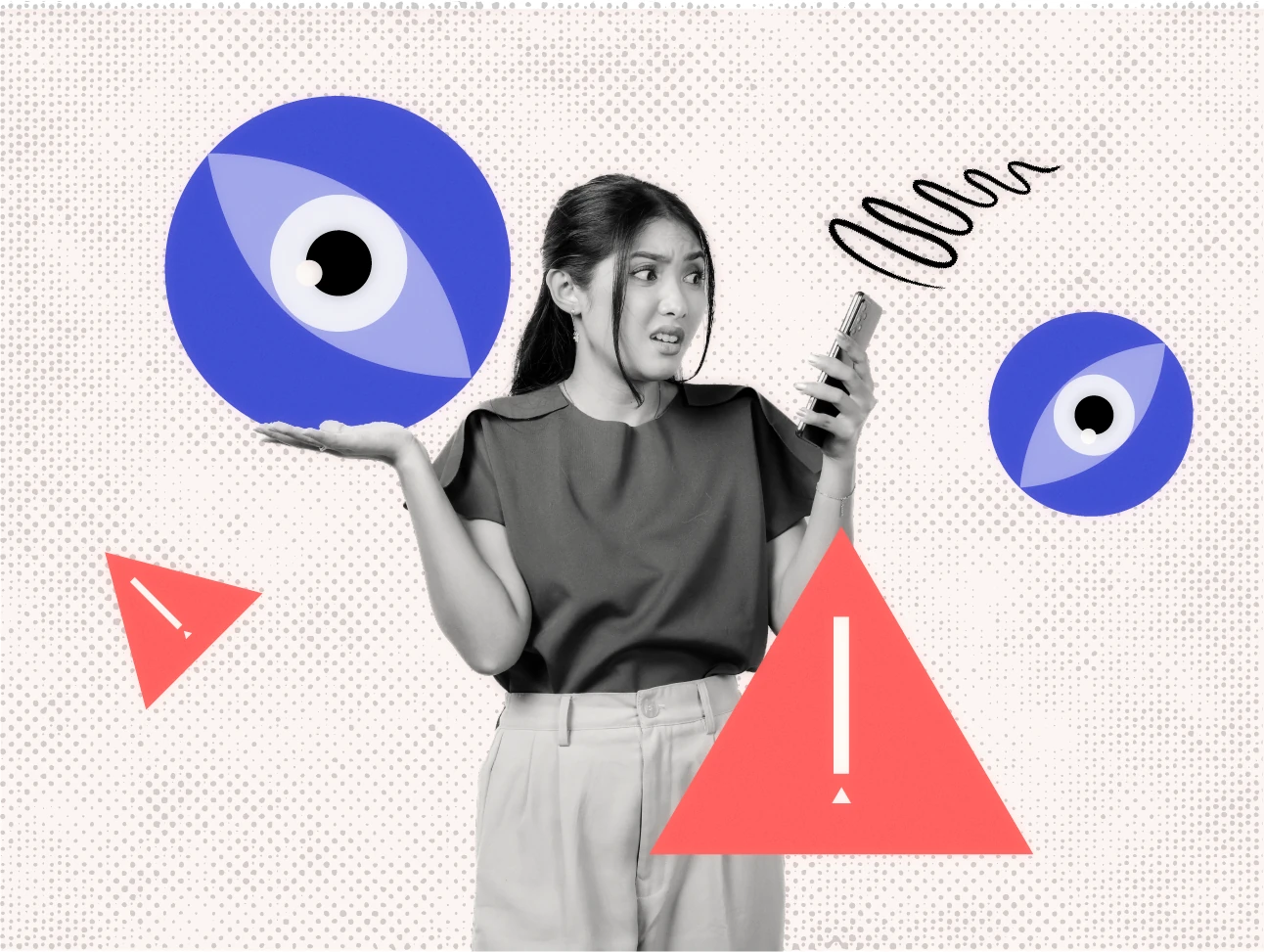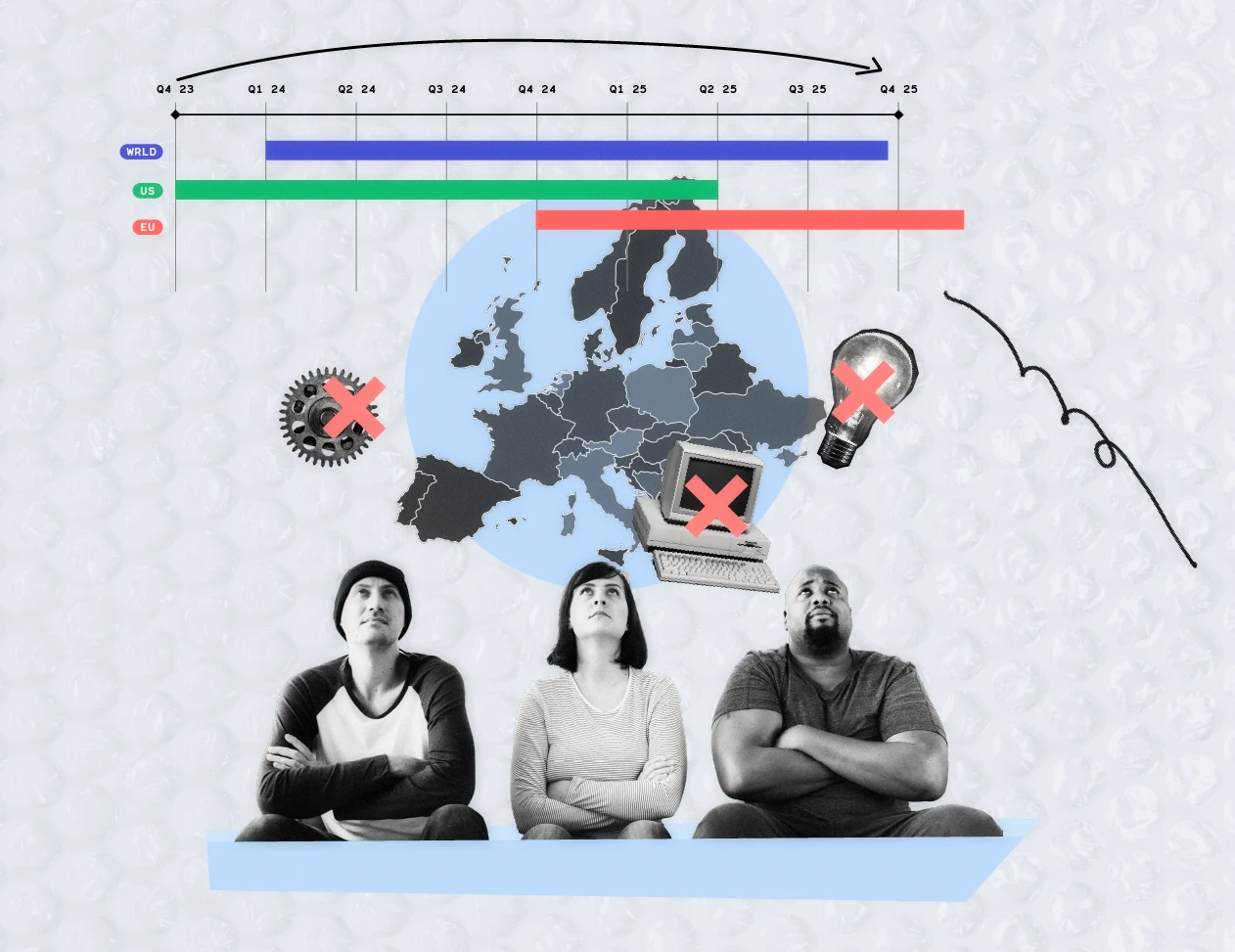
In September of 2022 the European Union passed the Digital Markets Act (DMA), a sweeping regulatory framework explicitly targeting large, foreign tech companies - or so-called "gatekeepers" - like Google, Apple, Meta, Amazon, Microsoft, and ByteDance. Among other restrictions, the DMA limits these companies from offering integrated services in an bid to boost homegrown competition in Europe’s stagnant digital economy.
Since its enactment, a host of critics - including academics, economists, industry players, and consumer groups - have sounded the alarm on the DMA’s unintended consequences. Two years later, these fears have materialized, resulting in a "Digital Curtain" around Europe, reminiscent of the Iron Curtain that once separated Eastern and Western Europe.
Touted as a catalyst for European innovation and competition, the Digital Markets Act has done the opposite: isolating European consumers from the full potential of the digital age.
From disjointed consumer experiences to delayed product rollouts, the evidence is clear: the DMA has drawn a digital curtain around European users, shrouding them in a degraded digital economy.
Consequence
European consumers are grappling with more fragmented, less intuitive digital services. From disjointed search results to cumbersome app installations, the DMA has introduced friction where seamless integration once prevailed.

Consequence
The forced modularity mandated by the DMA has created security gaps and exposed users to greater cybersecurity threats. Requiring third-party app stores and sideloading has created new vectors for malware and privacy breaches, compromising user data.

Consequence
The DMA has created an environment of regulatory uncertainty for tech innovators, causing significant delays in the rollout of cutting-edge technologies in Europe. From AI-powered features to new social media platforms, European users are increasingly finding themselves behind the global curve in accessing the latest digital innovations.
In some cases, companies have been forced to remove features entirely from their European offerings to comply with the DMA, leaving EU consumers with less capable versions of popular services compared to their global counterparts.

Chamber of Progress outlined the DMA’s specific consequences in a first-of-its-kind report highlighting 10+ examples of worsened consumer experiences on popular apps and services. The DMA means that European consumers are missing out on customized job recommendations on LinkedIn, integrated search results on Google, new AI tools from Apple and Meta, and much more.
Global policymakers should see Europe’s experience under the DMA as a cautionary tale. Before embracing similar regulations, other jurisdictions must consider whether they want to join Europe behind its Digital Curtain – or whether their citizens and economy would be better off enjoying faster technological advancement outside.
DownloadApple’s release announcement of the AirPods Pro 3 brings bad news for European consumers. While users in the rest of the world will benefit from AI integration that will allow the live translation of incoming audio, in real time, this feature won’t work in the EU, at least not at launch. The DMA makes any product integration particularly difficult for Apple and other designated Gatekeepers, because it requires that anything they build for themselves (even integrated), is also made available to rival services. This makes it harder to release integrated services in Europe because of the technical hurdles of engineering them to be open instead of integrated. This has led to Europeans missing out on new apps and services, as detailed in our Report.
The DMA’s “forced openness” further erodes user safeguards: Apple recently confirmed that it must allow an adult-content marketplace onto iPhones in the EU—overriding long-standing App Store guidelines that previously barred adult-oriented themes or graphic content. Parents who relied on Apple’s strong content policies now face new worries about the spread of explicit apps on devices used by their children. By compelling gatekeepers like Apple to admit third-party marketplaces and sideloaded apps, the DMA has undercut the robust parental controls and moderation practices that once helped prevent unauthorized or age-inappropriate downloads. Much like earlier concerns around the proliferation of unvetted or malware-laden apps, this situation highlights the troubling tension between “openness” and the beneficial gatekeeping when platforms take steps to protect consumers or moderate content.